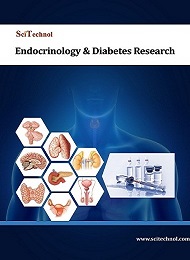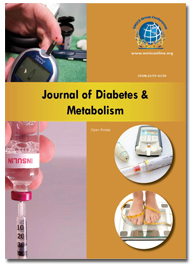Theme: Communication, Innovation and Development in the field of Endocrinology
Endocrinology Summit 2019
About Conference:
Conference Series Ltd extends its welcome to 13th International Conference on Endocrinology, Diabetes and Metabolism during April 08-09, 2019 at Wellington, New Zealand. With a theme “Communication, Innovation and Development in the field of Endocrinology”. Conference Series Ltd through its Open Access Initiative is committed to make genuine and reliable contributions to the scientific community.
Conference Series Ltd Organizes 1000+ Conferences Every Year across USA, Europe & Asia with support from 1000 more scientific societies and Publishes 700+ Open access journals which contains over 100000 eminent personalities, reputed scientists as editorial board members.
Endocrinology Summit 2019 will focus on research directed toward its impact on clinical outcomes, through oral and poster presentations, workshop sessions, and influential plenary presentations. Take advantage of opportunities to collaborate with speakers from around the world.
Endocrine Disorders and Prevention:
Endocrine disorder is defined as the diseases related to the endocrine glands of the body. The types of endocrine disorders are diabetes mellitus, acromegaly, Addison’s disease, Cushing’s syndrome, Graves’ disease, Hashimoto’s thyroiditis, hyperthyroidism, hypothyroidism, and prolactinoma. These disorders have various symptoms which affect multiple parts of the body, and can range in severity from mild to very severe. These disorders often have widespread symptoms, affect multiple parts of the body, and can range in severity from mild to very severe. Treatments depend on the specific disorder but often focus on adjusting hormone balance using synthetic hormones like Erythropoietin, Adipo-cytokines, Orexins , Endocrine Myopathies , Multiple Endocrine Neoplasia ,Exocrine Pancreatic Insufficiency ,Prostate cancer- Treatment and prevention.
Related conferences:
12th World Congress on Endocrinology and Metabolic Disorders May 13-14th, 2019 Osaka, Japan; 28th European Diabetes Congress June 10-11, 2019 | Edinburgh, Scotland; 12th Edition of International Conference on Endocrinology & Diabetology September 02 - 03, 2019 Berlin, Germany; 21st Asia Pacific Diabetes Conference April 17-18, 2019 Osaka,Japan
Diabetes and Cardiovascular Disease:
Diabetes is a prime risk factor for cardiovascular disease (CVD). Vascular disorders include retinopathy and nephropathy, peripheral vascular disease (PVD), stroke, and coronary artery disease (CAD). Diabetes also affects the heart muscle, causing both systolic and diastolic heart failure. Diabetes is a prime risk factor for cardiovascular disease (CVD). Vascular disorders include retinopathy and nephropathy, peripheral vascular disease (PVD), stroke, and coronary artery disease (CAD). Diabetes also affects the heart muscle, causing both systolic and diastolic heart failure. C ardiovascular disease and diabetes have emerged as major public health problems, both as distinct clinical entities and as comorbid conditions. As a result, the fields of vascular biology and endocrinology are working more closely now than ever before.
Related conferences:
28th European Diabetes Congress June 10-11, 2019 | Edinburgh, Scotland; 12th Edition of International Conference on Endocrinology & Diabetology September 02 - 03, 2019 Berlin, Germany; 21st Asia Pacific Diabetes Conference April 17-18, 2019 Osaka, Japan; 12thWorld Congress on Endocrinology and Metabolic Disorders May 13-14th, 2019 Osaka, Japan
Reproductive Endocrinology and Infertility:
Reproductive endocrinology and infertility (REI) is a surgical subspecialty of obstetrics and gynecology that trains physicians in reproductive medicine addressing hormonal functioning as it pertains to reproduction as well as the issue of infertility. While most REI specialists primarily focus on the treatment of infertility, reproductive endocrinologists are trained to also evaluate and treat hormonal dysfunctions in females and males outside infertility.
Related conferences:
12th Edition of International Conference on Endocrinology & Diabetology September 02 - 03, 2019 Berlin, Germany; 21st Asia Pacific Diabetes Conference April 17-18, 2019 Osaka, Japan; 12thWorld Congress on Endocrinology and Metabolic Disorders May 13-14th, 2019 Osaka, Japan; 28th European Diabetes Congress June 10-11, 2019 | Edinburgh, Scotland
Molecular and Cellular Endocrinology
Molecular and Cellular endocrinology is the field of study that majorly focuses on all aspects related to the biochemical and genetic effects, secretions and synthesis of extracellular signals (hormones, neurotransmitters, etc.) and to the understanding of cellular regulatory mechanisms involved in hormonal control.
Related conferences:
21st Asia Pacific Diabetes Conference April 17-18, 2019 Osaka, Japan; 12thWorld Congress on Endocrinology and Metabolic Disorders May 13-14th, 2019 Osaka, Japan; 28th European Diabetes Congress June 10-11, 2019 | Edinburgh, Scotland; 12th Edition of International Conference on Endocrinology & Diabetology September 02 - 03, 2019 Berlin, Germany
Diabetic Retinopathy:
Diabetic retinopathy, also known as diabetic eye disease, is a medical condition in which damage occurs to the retina due to diabetes mellitus. It is a leading cause of blindness. Diabetic retinopathy affects up to 80 percent of those who have had diabetes for 20 years or more.
Related conferences:
12thWorld Congress on Endocrinology and Metabolic Disorders May 13-14th, 2019 Osaka, Japan; 28th European Diabetes Congress June 10-11, 2019 | Edinburgh, Scotland; 12th Edition of International Conference on Endocrinology & Diabetology September 02 - 03, 2019 Berlin, Germany; 21st Asia Pacific Diabetes Conference April 17-18, 2019 Osaka,Japan
Diabetes Nephropathy:
Diabetic nephropathy (DN), also known as diabetic kidney disease, is the chronic loss of kidney function occurring in those with diabetes mellitus. Protein loss in the urine due to damage to the glomeruli may become massive, and cause a low serum albumin with resulting generalized body swelling (edema) and result in the nephrotic syndrome. Likewise, the estimated glomerular filtration rate (eGFR) may progressively fall from a normal of over 90 ml/min/1.73m2 to less than 15, at which point the patient is said to have end-stage kidney disease (ESKD). It usually is slowly progressive over years.
Related conferences:
28th European Diabetes Congress June 10-11, 2019 | Edinburgh, Scotland; 12th Edition of International Conference on Endocrinology & Diabetology September 02 - 03, 2019 Berlin, Germany; 21st Asia Pacific Diabetes Conference April 17-18, 2019 Osaka, Japan; 12thWorld Congress on Endocrinology and Metabolic Disorders May 13-14th, 2019 Osaka, Japan
Gestational Diabetes:
During pregnancy, some women develop high blood sugar levels. This condition is known as gestational diabetes mellitus. It can occur at any stage of pregnancy, but is more common in the second half. Gestational diabetes can cause problems for you and your baby during and after birth. But the risk of these problems happening can be reduced if it's detected and well managed.
Related conferences:
12th Edition of International Conference on Endocrinology & Diabetology September 02 - 03, 2019 Berlin, Germany; 21st Asia Pacific Diabetes Conference April 17-18, 2019 Osaka, Japan; 12thWorld Congress on Endocrinology and Metabolic Disorders May 13-14th, 2019 Osaka, Japan; 28th European Diabetes Congress June 10-11, 2019 | Edinburgh, Scotland
Diabetes, Pre-diabetes and Metabolic Syndrome:
Diabetes mellitus is a group of metabolic diseases characterized by high blood sugar (glucose) levels that result from defects in insulin secretion, or its action, or both. Diabetes mellitus, commonly referred to as diabetes was first identified as a disease associated with "sweet urine," and excessive muscle loss in the ancient world. Elevated levels of blood glucose (hyperglycemia) lead to spillage of glucose into the urine, hence the term sweet urine. Diabetes is a chronic condition associated with abnormally high levels of sugar (glucose) in the blood. Insulin produced by the pancreas lowers blood glucose. Absence or insufficient production of insulin, or an inability of the body to properly use insulin causes diabetes.
Related conferences:
21st Asia Pacific Diabetes Conference April 17-18, 2019 Osaka, Japan; 12thWorld Congress on Endocrinology and Metabolic Disorders May 13-14th, 2019 Osaka, Japan; 28th European Diabetes Congress June 10-11, 2019 | Edinburgh, Scotland; 12th Edition of International Conference on Endocrinology & Diabetology September 02 - 03, 2019 Berlin, Germany
Overweight & Obesity:
The term obesity refers to the condition where there is an accumulation of excess body fat that it might have a negative effect on their health. Being overweight may refer to the inappropriate or too much weight for height. Additionally, being overweight may due to other structures in the body such as the muscle and the bone rather than fats .being overweight can contributes to several diseases like diabetes, high blood pressure, stroke, heart attack... etc.
Related conferences:
12thWorld Congress on Endocrinology and Metabolic Disorders May 13-14th, 2019 Osaka, Japan; 28th European Diabetes Congress June 10-11, 2019 | Edinburgh, Scotland; 12th Edition of International Conference on Endocrinology & Diabetology September 02 - 03, 2019 Berlin, Germany; 21st Asia Pacific Diabetes Conference April 17-18, 2019 Osaka,Japan
Organ Transplantation:
Islet transplantation is a kind of transplantation where the transplantation is done by transferring isolated islets from a donor pancreas into another person. This is an experimental treatment for diabetes. Once the islets are transplanted, the islets begin to produce insulin, actively regulating the level of glucosein in the blood. Like this the pancreas can also be transplanted from one person to another and this method is called xenotransplantation.
Related conferences:
28th European Diabetes Congress June 10-11, 2019 | Edinburgh, Scotland; 12th Edition of International Conference on Endocrinology & Diabetology September 02 - 03, 2019 Berlin, Germany; 21st Asia Pacific Diabetes Conference April 17-18, 2019 Osaka, Japan; 12thWorld Congress on Endocrinology and Metabolic Disorders May 13-14th, 2019 Osaka, Japan
Pertaining of Metabolism:
Metabolism is the field of study that majorly focuses in the areas such as biosynthesis, storage, chemistry, and physiological function of hormones and with the cells of the endocrine glands and tissues that secrete them. Endocrinology mainly focuses on the endocrine organs, such as adrenals, pituitary, thyroid, pancreas, ovaries, testes, secretions called hormones, also its diseases and other syndromes.
Related conferences:
12th Edition of International Conference on Endocrinology & Diabetology September 02 - 03, 2019 Berlin, Germany; 21st Asia Pacific Diabetes Conference April 17-18, 2019 Osaka, Japan; 12thWorld Congress on Endocrinology and Metabolic Disorders May 13-14th, 2019 Osaka, Japan; 28th European Diabetes Congress June 10-11, 2019 | Edinburgh, Scotland
Genomic Endocrinology:
Genomic endocrinology is defined as the insights that may be gained about endocrine pathology and physiology from application of the full range of genetic approaches .Genetic mechanisms leading to endocrine disease, and functional studies of genetic mutations that shed novel insights into the aetiology and pathogenesis of endocrine disorders.
Related conferences:
21st Asia Pacific Diabetes Conference April 17-18, 2019 Osaka, Japan; 12thWorld Congress on Endocrinology and Metabolic Disorders May 13-14th, 2019 Osaka, Japan; 28th European Diabetes Congress June 10-11, 2019 | Edinburgh, Scotland; 12th Edition of International Conference on Endocrinology & Diabetology September 02 - 03, 2019 Berlin, Germany
Pediatric Endocinology:
Pediatric endocrinology is a medical subspecialty dealing with disorders of the endocrine glands, such as variations of physical growth and sexual development in childhood, diabetes and many more.
Related conferences:
12thWorld Congress on Endocrinology and Metabolic Disorders May 13-14th, 2019 Osaka, Japan; 28th European Diabetes Congress June 10-11, 2019 | Edinburgh, Scotland; 12th Edition of International Conference on Endocrinology & Diabetology September 02 - 03, 2019 Berlin, Germany; 21st Asia Pacific Diabetes Conference April 17-18, 2019 Osaka,Japan
Neuro Endocrinology:
Neuroendocrinology is the branch of biology (specifically of physiology) which studies the interaction between the nervous system and the endocrine system, that is how the brain regulates the hormonal activity in the body. Neuroendocrinology arose from the recognition that the brain, especially the hypothalamus, controls secretion of pituitary gland hormones, and has subsequently expanded to investigate numerous interconnections of the endocrine and nervous systems.
Related conferences:
28th European Diabetes Congress June 10-11, 2019 | Edinburgh, Scotland; 12th Edition of International Conference on Endocrinology & Diabetology September 02 - 03, 2019 Berlin, Germany; 21st Asia Pacific Diabetes Conference April 17-18, 2019 Osaka, Japan; 12thWorld Congress on Endocrinology and Metabolic Disorders May 13-14th, 2019 Osaka, Japan
Environmental Endocrinology:
Endocrine system regulates the interactions of organisms with their environments. The endocrine system comprises all of the tissues and glands in the body that synthesize and release chemical-signaling molecules referred to as hormones. Hormones are made by specific glands, including the pituitary gland, hypothalamus, thyroid gland, adrenal glands, pancreas, parathyroid glands, ovaries, testes, and pineal gland. Several other tissues in the body, including the gastrointestinal tract, adipose cells, and bone, also produce hormones, although these tissues have not traditionally been categorized as endocrine glands.
Related conferences:
12th Edition of International Conference on Endocrinology & Diabetology September 02 - 03, 2019 Berlin, Germany; 21st Asia Pacific Diabetes Conference April 17-18, 2019 Osaka, Japan; 12thWorld Congress on Endocrinology and Metabolic Disorders May 13-14th, 2019 Osaka, Japan; 28th European Diabetes Congress June 10-11, 2019 | Edinburgh, Scotland
Endocrine Glands and Hormones:
Endocrine disorders can be classified according to the intensity of hormonal activity and according to the origin of endocrine disorder. From the intensity of hormonal activity of endocrine gland we can distinguish Hyper function of endocrine gland, which is characterized by increased secretion of its hormone as well as by increased concentration of this hormone in circulating blood .Hypo function of endocrine gland, which is characterized by decreased secretion of its hormone as well as by decreased concentration of this hormone in circulating blood. If endocrine gland produces several kinds of hormones the symptoms resulting from hyper production or hypo production of more kinds of hormones may develop, respectively, at the same time the symptoms of hyper function resulting from overproduction of one kind of hormones and the symptoms of hypo function due to a deficiency of other kind of hormones can develop . Eufunction of endocrine gland, which is in the time of medical examination characterized by normal secretion of its hormone as well as by normal concentration of this hormone (these hormones)in circulating blood. Endocrine disease results when a gland produces too much or too little of an endocrine hormone called as hormone imbalance.
Related conferences:
12th Edition of International Conference on Endocrinology & Diabetology September 02 - 03, 2019 Berlin, Germany; 21st Asia Pacific Diabetes Conference April 17-18, 2019 Osaka, Japan; 12thWorld Congress on Endocrinology and Metabolic Disorders May 13-14th, 2019 Osaka, Japan; 28th European Diabetes Congress June 10-11, 2019 | Edinburgh, Scotland
Endocrine Surgery:
Endocrine surgery is a surgical subspecialty of surgery that focuses predominantly on diseases of the endocrine glands such as thyroid, parathyroid, and adrenal glands. Endocrine surgeons and Endocrinologists typically work closely together to provide the most advantageous care to patients afflicted with endocrine disorders.
Related conferences:
12thWorld Congress on Endocrinology and Metabolic Disorders May 13-14th, 2019 Osaka, Japan; 28th European Diabetes Congress June 10-11, 2019 | Edinburgh, Scotland; 12th Edition of International Conference on Endocrinology & Diabetology September 02 - 03, 2019 Berlin, Germany; 21st Asia Pacific Diabetes Conference April 17-18, 2019 Osaka,Japan
Thyroid Disorders:
The metabolic rate of most of your body's organs was determined by thyroid. Normally, when thyroid hormone levels in the body are high, they will "switch off" the production of TSH, which in turn stops the thyroid from making more T4 and T3 .Problems occur when the thyroid gland becomes either underactive (hypothyroidism) or overactive (hyperthyroidism). Thyroid problems are more common in women than men. Cancer may also develop in the thyroid gland. The most common cause of hypothyroidism is Hashimoto's thyroiditis, an autoimmune condition where the body makes antibodies that destroy parts of the thyroid gland. Thyroid hormone production can be suppressed or halted completely by following these methods radioactive iodide treatment, Anti-thyroid medication and Surgery.
Related conferences:
28th European Diabetes Congress June 10-11, 2019 | Edinburgh, Scotland; 12th Edition of International Conference on Endocrinology & Diabetology September 02 - 03, 2019 Berlin, Germany; 21st Asia Pacific Diabetes Conference April 17-18, 2019 Osaka, Japan; 12thWorld Congress on Endocrinology and Metabolic Disorders May 13-14th, 2019 Osaka, Japan
Endocrine Cancers:
Cancer is a group of many related disease that is caused is uncontrolled division of abnormal cells that grow and spread very fast. It may cause a growth called tumor. Cancer Endocrinology is the cancer that begins in one of endocrine glands. Endocrine cancers are a mixed group of diseases characterized by uncontrolled cellular proliferation of the hormone-producing glands of the endocrine system .The most common sort of endocrine cancer is thyroid cancer, which begins in the thyroid gland. There are also some types of pancreatic cancer that are classified as endocrine tumors.Some tumour that grow in an endocrine gland are benign, which means they're not cancerous. For example, most pituitary tumours are benign. However, benign tumours are often treated in the same way as cancerous tumours.
Related conferences:
12th Edition of International Conference on Endocrinology & Diabetology September 02 - 03, 2019 Berlin, Germany; 21st Asia Pacific Diabetes Conference April 17-18, 2019 Osaka, Japan; 12thWorld Congress on Endocrinology and Metabolic Disorders May 13-14th, 2019 Osaka, Japan; 28th European Diabetes Congress June 10-11, 2019 | Edinburgh, Scotland
Care & Prevention of Endocrinology, Diabetes & Metabolism:
Endocrinology is a division of biology and medicine dealing with the endocrine system, its functions, diseases, and its specific secretions known as hormones. It is also concerned with the integration of developmental events proliferation, growth, and differentiation, and the psychological or behavioral activities of metabolism ,growth and development , tissue function , reproduction and sensory perception , excretion ,sleep , respiration, digestion , stress , mood , lactation , movement , caused by hormones . The endocrine system may have several glands in all parts of the body those secretes hormones. These hormones are responsible for performing several important functions in our body. if the behavior of hormones is not correct means it leads to cause hormonal imbalance , due to hormonal imbalance the endocrine glands can leads to cause several diseases like Diabetes , thyroid ,…etc. Endocrinology and Metabolism is the study based on the physiology of endocrine and metabolic systems. Physiological, cellular, and molecular studies in whole animals or humans will be considered for mechanisms of hormone and growth factor action; hormonal and nutritional regulation of metabolism, inflammation, micro biome and energy balance; integrative organ cross talk; paracrine and autocrines control of endocrine cells; function and activation of hormone receptors; endocrine or metabolic control of channels, transporters and membrane function; Novel molecular, immunological, or biophysical studies of hormone action , mathematical/kinetic modeling of metabolism.and Temporal analysis of hormone secretion and metabolism.
Related conferences:
21st Asia Pacific Diabetes Conference April 17-18, 2019 Osaka, Japan; 12thWorld Congress on Endocrinology and Metabolic Disorders May 13-14th, 2019 Osaka, Japan; 28th European Diabetes Congress June 10-11, 2019 | Edinburgh, Scotland; 12th Edition of International Conference on Endocrinology & Diabetology September 02 - 03, 2019 Berlin, Germany
Alternative therapies & Complications:
Alternative therapies can be well-defined as a "cluster of varied therapeutic and health care arrangements, practices, and medicines that are not presently measured to be part of predictable medicine”. Complementary medicine is used with predictable therapy, whereas alternative medicine is used instead of conventional medicine. Although few therapies may be useful, others are not so useful or even harmful. Contrary reactions of many therapies are not known because patients with diabetes often take various diabetes medications, there occurs budding for herbal medicine and herb dietary habit supplement interactions, leading to contrary events. Long-standing complications of diabetes grow progressively. Number of years having diabetes is directly proportional to the higher risk of complications. Broader health issues quicken the venomous effects of diabetes which include smoking, obesity, higher diabetes cholesterol levels, high blood pressure, and lack of regular exercise. The best forecaster of type 2 diabetes is Obesity and Weightless.
Related conferences:
12thWorld Congress on Endocrinology and Metabolic Disorders May 13-14th, 2019 Osaka, Japan; 28th European Diabetes Congress June 10-11, 2019 | Edinburgh, Scotland; 12th Edition of International Conference on Endocrinology & Diabetology September 02 - 03, 2019 Berlin, Germany; 21st Asia Pacific Diabetes Conference April 17-18, 2019 Osaka,Japan
Scope and Importance
Endocrinology, Diabetes and Metabolic Disorders is a branch of science dealing with the endocrine glands and related disorders and a metabolic disorder deals with abnormal chemical reactions in the body alter the normal metabolic process. Endocrinology includes the study of hormones, the endocrine system, and their role in the physiology of the body. Endocrinology is a department of medicine which manages with the diagnosis and treatment of diseases related to hormones and also diagnostic evaluation of a wide variety of symptoms and variations and the long-term management of disorders of deficiency or excess of one or more hormones. Diabetes mellitus (DM), commonly referred to as diabetes, is a group of metabolic disorders in which there are high blood sugar levels over a prolonged period. Symptoms of high blood sugar include frequent urination, increased thirst, and increased hunger. If left untreated, diabetes can cause many complications. A metabolic disorder can occur when irregular chemical reactions in the body altering the normal metabolic pathway. It can also be defined as inherited single gene anomaly, most of which are autosomal recessive.
People suffering with various endocrine disorders and endocrine cancers:
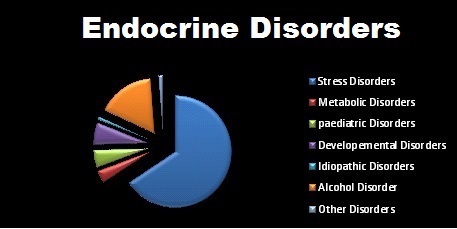
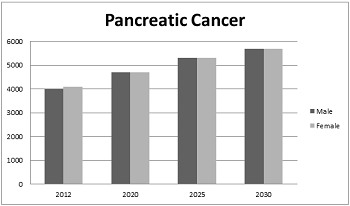
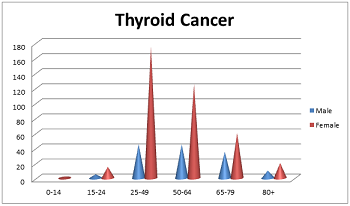
Why Wellington, New Zealand:
Wellington is the capital city and second most populous urban area of New Zealand, with 412,500 residents. Situated at the southern end of the North Island, Wellington, New Zealand, was recently named "the coolest little capital in the world" by Lonely Planet. Surrounded by nature and fuelled by creative energy, Wellington is a compact city with a powerful mix of culture, history, nature and cuisine. Fuel your visit with strong coffee and world-class craft beer – Wellingtonians are masters of casual dining, with plenty of great restaurants, night markets and food trucks.
Diabetes in New Zealand:
Over 240 000 New Zealanders have been diagnosed with diabetes (diabetes mellitus). It is estimated that another 100,000 have diabetes that has not been diagnosed. In New Zealand Type 2 diabetes is increasing rapidly and in some regions is considered to have reached epidemic proportions. Maori and Pacific Island New Zealanders are more than three times more likely to develop diabetes than most other New Zealanders. Rates of diabetes are also high among Asian New Zealanders. Other risk factors for developing diabetes include: obesity; family history; high blood pressure and cholesterol levels; little or no exercise; pregnancy; women who have had a large baby (>4000g birth weight) and/or a history of gestational diabetes; and being over 40 years of age.

Obesity: Obesity in New Zealand
Obesity is more prevalent in New Zealand females from age 5 until the age of 34, at which time the males overtake the females in terms of percentage. After essentially coming in at a dead heat in the 55 to 64 bracket, female obesity becomes a higher risk for 65- to 74-year-olds than it does for males, only to switch odds again after 75.
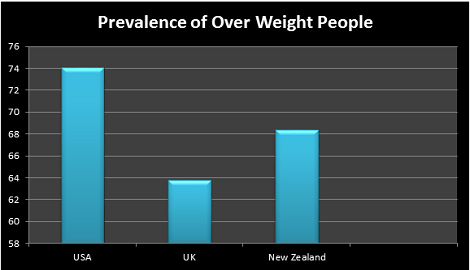
Recent years showed that adults in deprived areas are 1.5 times more likely to become obese than those in well-off areas and children in deprived areas are 2.5 times more likely to become obese than those in well-off areas.
Things to do
Relax at Oriental Bay, Wellington’s golden-sand inner-city beach and delve into the many museums, art galleries and theatre shows that make up the city’s pulsing cultural scene. If you’re into the outdoors, Wellington has action-packed adventure activities like mountain biking and sea-water kayaking, as well as beautiful walks around the harbor and surrounding hills. Try the visually stunning Makara Peak track, as well as the City to Sea walk where you can experience the best of Wellington's waterfront. Ride the cable car up the hill to Kelburn for amazing views over the city and enjoy an ice cream at the top.
On the waterfront itself you’ll find Te Papa Tongarewa Museum, New Zealand’s national museum. Te Papa, as it’s colloquially known, means ‘our place’ and is one of the best interactive museums in the world.
Why to attend:
In today’s fast changing world, attending a conference has become a “must” to survive in an academic discipline. This is a motivational factor as one aspires to overcome fears and achieve one’s dreams.
Networking Opportunities:
Endocrinology Conference is to meet with likeminded people and industry peers. At a conference you will be able to get together with people from a wide range of backgrounds, of whom you may not encounter at your home, workplace or institution. As you build your professional network with people in your field that you haven’t connected in a while.

Presenting a paper: To expand your knowledge and find solutions to problems
The presenter will have the chance to present a paper in front of colleagues of the same or similar fields of study and will be able to receive positive feedback and constructive criticism about their research. The exchange of ideas on fields of interests seeds the links for future collaborations across the world.

Publication:
Conference proceedings are always a good way to have your research published and indexed.

Travelling:
An academic conference is a great way to have a “break” from your academic responsibilities at the university and discover different cities of the world. Be assured that you’ll feel relaxed and refreshed when you return to your institution after the conference.

Takeaways:
Conference provides a unique convergence of networking, learning, and fun into a single package. Endocrinology summit conference forces you to grow and challenge yourself. Gain confidence in their ability, and bring fresh ideas back to the business is just an investment in your own company.

Target audience:
Endocrinologists, Diabetologists, Faculty, Health professionals, Scientists, Academic Scientists, Industry Researchers, Business Leads, Networking and Business Delegates, CEOs, CMOs, Vice-Presidents, Directors, GMs, Scholars, Universities, Research Centers, Educational Institutions, Life Sciences, Associations, Societies, Manufacturing Medical Devices Companies.

Conference Series LLC successfully hosted its premier 12th International Conference on Endocrinology, Diabetes and Metabolism from October 01-02, 2018 at Osaka, Japan. The conference was organized with a focus on “Bridging excellence in Endocrinology, Diabetes & Metabolism” and it was a great success where eminent keynote speakers from various reputed organizations made their resplendent presence and addressed the gathering.
Endocrinology Summit 2018 was marked by the attendance of Editorial Board Members of main Journals is Journal of Endocrinology & Diabetes Research. Many Scientists, young and brilliant Researchers, Business Delegates and talented Student Communities representing from varies countries made this conference fruitful and productive driving the two-day event into the path of success with thought provoking keynote and plenary presentations.
The 12th International Conference on Endocrinology, Diabetes and Metabolism covered the following scientific sessions and discussions:
· Care & Prevention of Endocrinology, Diabetes & Metabolism
· Gynaecological Endocrinology
· Diabetes, Pre-diabetes and Metabolic Syndrome
· Reproductive Endocrinology and Infertility
· Pathophysiology of Endocrine glands and their hormones
· Prevention, Case Studies and Treatment for Diabetes
· Endocrine Disorders and Prevention
· Thyroid Disorders, Symptoms, &Treatment
· Molecular and Cellular endocrinology
· Cancer: Causes, Symptoms and Research
· Alternative therapies & Complications
The response to Endocrinology Summit 2018 was huge attendees from different corners of the world. The conference was initiated with a series of invited lectures delivered by both Honorable Guests and members of the Keynote forum.
· Gerald C Hsu,
EclaireMD Foundation, USA
· Joel Gailledreau
Cabinet Medical Ambroise Pare, France
· Valerie Adrian
Bordeaux Universitary Hospital, France
· Philip James,
W. P. Carey School of Business -Arizona State University, USA
All the above mentioned Honorable Guests and Keynote speakers gave their energetic and fruitful contributions at Endocrinology Summit 2018.
All accepted abstracts have been indexed in OMICS Group Journal of Endocrinology & Diabetes Research as a special issue.
We are also obliged to various outside experts, company representatives and other eminent personalities who supported the conference by facilitating the discussion forums. Our sincere thanks to Organizing Committee Members for their gracious presence, support and assistance towards Endocrinology Summit 2018, and with their unique feedback, Conference Series LLC would like to announce the "13th International Conference on Endocrinology, Diabetes and Metabolism" to be held in Wellington, New Zealand during April 08-09, 2019.
Conference Highlights
- Endocrine Disorders and Prevention
- Diabetes and Cardiovascular Disease
- Reproductive Endocrinology and Infertility
- Molecular and Cellular endocrinology
- Diabetic Retinopathy
- Diabetic Nephropathy
- Gestational Diabetes
- Diabetes, Pre-diabetes and Metabolic Syndrome
- Overweight and Obesity
- Organ transplantation
- Pertaining of Metabolism
- Genomic endocrinology
- Pediatric endocrinology
- Neuroendocrinology
- Environmental Endocrinology
- Endocrine glands and hormones
- Endocrine Surgery
- Thyroid Disorders
- Endocrine Cancers
- Care & Prevention of Endocrinology, Diabetes & Metabolism
- Alternative therapies & Complications
To share your views and research, please click here to register for the Conference.
To Collaborate Scientific Professionals around the World
| Conference Date | April 08-09, 2019 | ||
| Sponsors & Exhibitors |
|
||
| Speaker Opportunity Closed | |||
| Poster Opportunity Closed | Click Here to View | ||
Useful Links
Special Issues
All accepted abstracts will be published in respective Our International Journals.
Abstracts will be provided with Digital Object Identifier by



